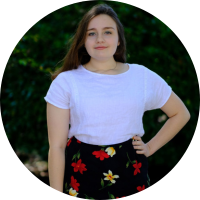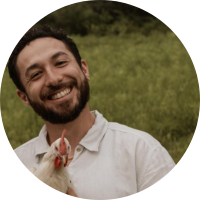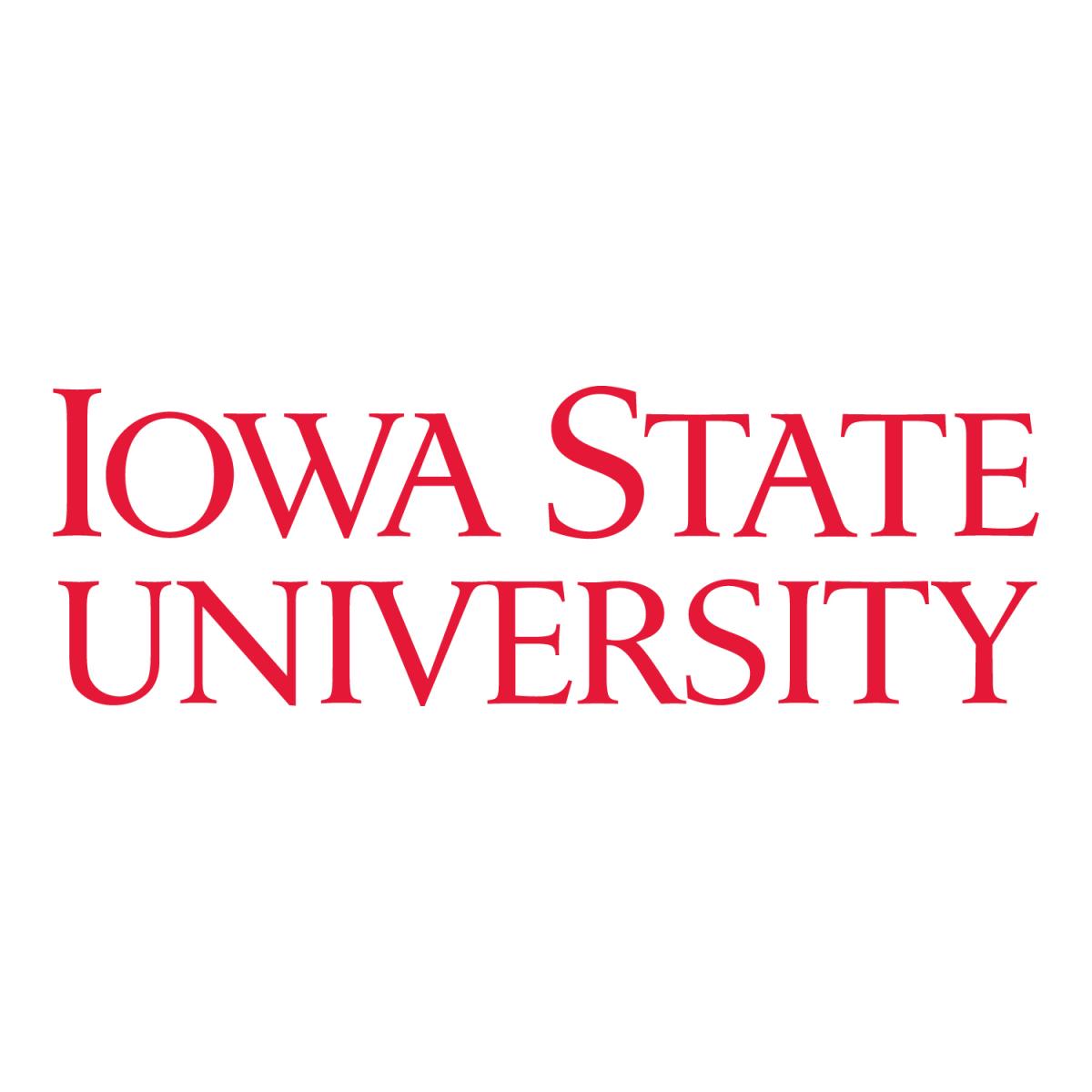University of Kentucky
Dr. David Gonthier
Position: Project Director
Dr. David Gonthier, PhD, is an assistant professor in the Department of Entomology at the University of Kentucky. His research seeks to evaluate the viability of agricultural management systems to curtail environmental problems, promote sustainable pest control and biodiversity conservation while maintaining productivity and profitability. He deploys ecological theory to better identify and design agroecological practices that promote improved farm multi-functionality. Through collaboration with interdisciplinary teams, he seeks to describe the intersection between ecology and socioeconomic forces that form incentives and barriers to the adoption of sustainable practices. His research focuses on fruit and vegetable production in Kentucky and coffee in Honduras. He teaches a number of classes at the University of Kentucky that are related to sustainable agriculture, including: Agroecology, Field Crop Entomology, and Wake Up and Smell the Coffee! (a course all about coffee).
Dr. Ricardo Bessin
Position: Co-PI
Dr. Ric Bessin, PhD, is an Extension Professor and Extension Specialist at the University of Kentucky. His extension responsibilities include developing and evaluating IPM decision guidelines and management strategies for specialty and field-crop insect pests. He is currently addressing the management of polyphagous stink bugs in multiple cropping systems; evaluating and implementing alternative management strategies for oriental fruit moth and codling moth in commercial apple orchards; developing reduced-risk and organic controls for cucumber beetle, bacterial wilt, squash bug, and yellow vine decline control in melons and squash; manipulation of wild pollinators in cucurbit production systems; and management of the invasive sugarcane aphid on sweet sorghum. He provides educational programs and pest management recommendations to extension educators, agribusiness personnel, commercial producers, and Master Gardeners to better manage pests of field corn, fruits, vegetables, forages, and greenhouses. His goal is to provide balanced, science-based, educational programs addressing sustainable arthropod management and environmental stewardship. Bessin serves as Kentucky IPM coordinator, IR-4 liaison, and PSEP Coordinator for Kentucky.
Dr. Mark Williams
Position: Co-PI
Dr. Mark Williams, PhD has been a faculty member in the Department of Horticulture at the University of Kentucky since 2001 and is currently the Chair of the department. His research interests are in sustainable agriculture, with a particular focus on evaluating and developing sustainable organic horticulture production systems. Dr. Williams has conducted a range of experiments in organic farming, from optimizing the production of direct-marketed vegetables to developing control options for specific pest problems in cucurbits, peppers, tomatoes and apples. In addition to research, Dr. Williams is committed to student learning and led the development of the UK Sustainable Agriculture undergraduate program. As part of these efforts he established the 30-acre UK Organic Farming Unit, which houses a community supported agriculture (CSA) program and an associated student apprenticeship. The Organic Farming Unit is used in a variety of extension and farmer training programs across all topic areas associated with diversified vegetable production.
Dr. Katie Fiske
Alexis (Lexi) Gauger
Position: PhD Student
Lexi Gauger (she/her) is a current PhD student in the Gonthier Lab and recent graduate of the University of Kentucky. She grew up on a small family farm outside Cincinnati, Ohio, where she learned to love the natural world and the process of growing food. She completed her undergraduate work at the University of Kentucky, where she earned a BSc in Sustainable Agriculture and a Bsc in Entomology in 2022. During her undergraduate years, she completed a USDA REEU internship studying honey bees in the Tarpy Lab at North Carolina State University, which sparked her interest in insects, and an NSF REU internship studying black soldier flies in the Aloykhin Lab at the University of Maine, which further confirmed that she wanted to study entomology. She also was a fellow at the interdisciplinary Gaines Center for the Humanities, where she completed a thesis merging ethics and sustainable agriculture. She began working as an undergraduate researcher with the Gonthier Lab in 2021. After earning her undergraduate degrees, she continued working in the Gonthier Lab—this time as a PhD student. Her research examines the relationships between bee health and crop yield in diversified agroecosystems. She continues to think and work interdisciplinarily as a Food Systems Fellow at the University of Kentucky’s The Food Connection. Lexi’s work on this project will address best practices to achieve effective pollination and bee community health in mesotunnel systems.
Elaine Losekamp
Position: Technician
 Elaine Losekamp is a technician and incoming Entomology MS student in the Gonthier Lab at the University of Kentucky. She graduated from Western Kentucky University with a BSc degree in Agriculture in 2020. While a student at WKU, Elaine spent over two years serving as an intern for a community garden called Top Crops where she developed a passion for small-scale, diversified fruit and vegetable farming. Since graduating, she has worked in the South-Central Kentucky food system in a variety of capacities, including developing a new food recovery program for Glean Kentucky, managing the Community Farmers Market in Bowling Green, and working in vegetable production at Need More Acres Farm in Scottsville, Kentucky.
Elaine Losekamp is a technician and incoming Entomology MS student in the Gonthier Lab at the University of Kentucky. She graduated from Western Kentucky University with a BSc degree in Agriculture in 2020. While a student at WKU, Elaine spent over two years serving as an intern for a community garden called Top Crops where she developed a passion for small-scale, diversified fruit and vegetable farming. Since graduating, she has worked in the South-Central Kentucky food system in a variety of capacities, including developing a new food recovery program for Glean Kentucky, managing the Community Farmers Market in Bowling Green, and working in vegetable production at Need More Acres Farm in Scottsville, Kentucky.
Elaine is interested in researching and supporting sustainable farming practices. She is excited to further her understanding of sustainable pest management strategies and contribute to research on the multiple benefits of protective netting in organic vegetable production with the Gonthier Lab.
Iowa State
Dr. Ajay Nair,
Position: Co-PI
Dr. Ajay Nair is an Associate Professor working in the area of Sustainable Vegetable Production in the Department of Horticulture at Iowa State University. The focus of his research, extension, and education program is on cover cropping, conservation tillage, nutrient management, soil amendments and health, and season extension strategies in vegetable production. He works closely with commercial vegetable growers, extension staff, industry representatives and stakeholders to meet the rising demand of locally grown produce and to enhance the profitability and sustainability of vegetable production systems.
Dr. Katherine Dentzman,
Position: Co-PI
Dr. Katherine Dentzman, PhD, earned her BA as a double major in Environmental Science and Sociology at Central Michigan University and both her MA and PhD in Sociology with a specialization in Ecological Food and Farming Systems at Michigan State University. After graduation she held multiple USDA-funded postdoctoral research associate positions at both Washington State University and University of Idaho, followed by a position with the USDA's National Institute of Food and Agriculture as a Social Science Program Specialist. Dr. Dentzman specializes in transdisciplinary agri-food research at the intersection of environmental and social sustainability. Using mixed methods designs and a grounding in critical theory, she has contributed a unique sociological perspective to nearly a dozen separate research teams. She is broadly interested in 'unbelonging' and community in agri-food systems, particularly focusing on the implications for conjoint dimensions of sustainability. Her work has advanced an understanding of the human dimensions of herbicide resistance issues in agriculture, for which she has numerous publications, invited presentations, grant funding, and committee positions. She has also applied theories of good farming, place attachment, and intersectionality to study the pathways and barriers to success in agriculture faced by women and LGBTQ+ farmers.
Joe Hollis
Position: PhD Student/Graduate Research Assistant
Joe Hollis is a PhD student in Rural Sociology and Sustainable Agriculture at Iowa State University. He is primarily interested in agricultural governance and policy issues, particularly in areas such as pest management, natural resource management, and precision agriculture. He is also interested in the development of resilience capacity in rural communities and the attitudes and beliefs of those living within them.
Joe completed an MSc in Food Security at the University of Edinburgh and holds a BA in Political Science from the University of London. His interest in all things food and agriculture stems from previous research projects with producers, NGOs, and working as a chef in several busy kitchens.
Smriti Chaudhary
Position: Master’s Student
Smriti Chaudhary is a current graduate student at Iowa State University pursuing an Master of Science in Sustainable Agriculture and Horticulture. She completed her Bachleor of Science in Agriculture from Punjab Agricultural University, India in 2023. She has hands-on experience in growing crops and has served as an intern focusing on soil nutrient management, organic farming, composting, and crop production. She works in the Sustainable Vegetable Production Lab with Dr. Ajay Nair, focusing on organic transplant production and in-field pest management of vegetable crops. Her academic pursuits have been a blend of theory and practice, and she looks forward to establishing farmer-friendly specialty crop management practices and making a positive impact on the community. She is curious about vegetable systems, crop management and sustainability!
Akshaya Thinakaran
Position: Master’s Student
Akshaya Thinakaran is a master’s degree student in Horticulture with a focus on sustainable vegetable production at Iowa State University. She is interested in working on greenhouses, organic cultivation of horticulture crops, and hydroponics. She is also interested in weed and pest management in vegetable crops that she believes to have serious effects on the yield. Akshaya has completed her Bachelor of Science degree in Agriculture at Vellore Institute of Technology, India. Her passion is to help the farming community by reducing their yield losses. Due to her interest in nutrient management, her earlier research projects were in black gram crop, which involves biosynthesized nano-nutrients namely zinc and sulfur to improve the productivity of the crop by overcoming nutrient stress.
Cornell University
Dr. Sarah Pethybridge
Position: Co-PI
Dr. Sarah Pethybridge, PhD is an Associate Professor of Plant Pathology within the Plant Pathology and Plant-Microbe Biology Section at Cornell AgriTech at the New York State Agricultural Experiment Station in Geneva, New York. She specializes in vegetable disease epidemiology and management. She joined Cornell University in 2014 after roles as an Extension Plant Pathologist at the University of Tasmania, Australia; Research Manager for the Australian Pyrethrum Industry; and Science Group Leader (Field Crops) at the New Zealand Institute of Plant and Food Research. She received her Bachelor of Agricultural Science with First Class Honors and PhD in Plant Pathology in 1995 and 2000, respectively. She has worked on diseases of a broad range of specialty crops including hop, pyrethrum, snap bean, carrot, potato, cucurbits, and table beet.
Dr. Wendong Zhang
Position: Co-PI
Dr. Wengong Zhang, PhD is currently Faculty Affiliate at Cornell Center for China Economic Research (CICER), Faculty Fellow at Cornell Atkinson Center for Sustainability, a Faculty Collaborator at the Iowa State University Center for Agricultural and Rural Development (CARD), and a 2023–2025 Fellow with the Leibniz Centre for Agricultural Landscape Research (ZALF). Dr. Zhang is currently an Associate Editor of American Journal of Agricultural Economics as well as the Journal of Soil and Water Conservation. His research and extension program has also won awards such as the AAEA Bruce Garner Memorial Prize for Applied Policy Analysis Award and the AAEA 2021 Winner of the Distinguished Extension/Outreach Program Award for Individuals with Less than Ten Years’ Experience. Dr. Zhang received his PhD in Agricultural, Environmental and Development Economics from the Ohio State University in July 2015, and he also holds a BSc in Environmental Science from Fudan University in China.
Sean Murphy
Sean Murphy grew up in Penn Yan, New York and graduated from Penn Yan Academy in 2012. From there, he enrolled at Finger Lakes Community College (FLCC) in the AAS Horticulture degree program. Upon graduating in 2014, Sean transferred to Morrisville State College to further his horticultural education and pursue a Bachelor of Technololgy degree in Horticulture Business Management. After graduating from Morrisville, he moved to Allentown, PA to complete an internship at Dan Schantz Greenhouse. The greenhouse is the 30th largest in the United States and grows bedding plants for Walmart, Lowes, and many other retail stores.
Sean’s past research included working alongside Cornell Summer Scholars in 2015 studying parthenocarpic squash under the supervision of Dr. Stephen Reiners and Jim Ballerstein. Sean is currently working as a technician in the EVADE lab and hopes to continue his research in fungal interactions with broad-acre crops.
Kaitlin Diggins
Kaitlin Diggins (she/her) is from Mondamin, Iowa, and a recent graduate of Iowa State University (2022) with a bachelor’s degree in Environmental Science and a minor in Horticulture. Kaitlin grew up on a small, diversified hobby farm in the Loess Hills, where a deep passion for nature, science, and sustainable, small-scale agriculture was catalyzed. Her previous experience with specialty crops and commercial farming started when she was hired for her first job on a local family-owned fruit farm. From there, she made it a personal goal to participate in interdisciplinary projects that work toward a sustainable future for farmers. Kaitlin’s research interests evolved as she progressed through her academic career, starting in agriculture and soil science, moving to plant biochemistry and climate change, and finally progressing to integrated pest management in organic farming systems.
Kaitlin is currently a PhD student in the Department of Plant Pathology and Plant-Microbe Biology at Cornell University. She works in the EVADE lab with Dr. Sarah Pethybridge, PhD, collaborating with UK and ISU to expand resilient climate and pest protection systems in organic specialty crops.
The Organic Center
Dr. Amber Sciligo
Dr. Amber Sciligo, PhD, is the Director of Science Programs at The Organic Center where she directs communications and research projects on organic agriculture. During her tenure at The Organic Center, Dr. Sciligo has worked closely with researchers, industry, farmers, and policymakers to identify organic research needs, and she has collaborated on a diverse range of research programs with her most recent collaborations, including projects aimed at:
- Mitigating climate change
- Increasing the accessibility of equitable agricultural technology aimed at supporting the organic supply chain
- Reducing incongruities in National Organic Program standards and third-party food safety requirements
- Tackling challenges associated with inadvertent pesticide contamination across the organic supply chain
- Incorporating livestock into cropping systems
Dr. Sciligo received her PhD at Lincoln University, New Zealand in Ecology & Evolution. While her technical expertise is grounded in plant-insect interactions, particularly pollination, her extensive postdoctoral research at UC Berkeley took an interdisciplinary approach to intersect ecological, economic and socio-political arenas to reveal truly sustainable farming practices. The main goal of Dr. Sciligo’s research is to understand how farming practices that promote biodiversity and ecosystem services can be better supported at all farm scales. She hopes that by finding barriers to and opportunities for adoption, policy can more feasibly support farmers to adopt practices that simultaneously protect the land and support the economic health of their farms, while improving their own livelihoods and the livelihoods of their local communities
Dr. Elias Miller
 Dr. Elias Miller, PhD, is the Science Programs Manager at The Organic Center, where he leads initiatives to advance scientific understanding and promote sustainable practices in agriculture. With a background in environmental studies and biology, Elias is deeply invested in integrating Justice, Equity, Diversity, and Inclusion (JEDI) principles within science, technology, engineering and mathematics (STEM) fields, enhancing science education, and improving food systems.
Dr. Elias Miller, PhD, is the Science Programs Manager at The Organic Center, where he leads initiatives to advance scientific understanding and promote sustainable practices in agriculture. With a background in environmental studies and biology, Elias is deeply invested in integrating Justice, Equity, Diversity, and Inclusion (JEDI) principles within science, technology, engineering and mathematics (STEM) fields, enhancing science education, and improving food systems.
Elias' research interests in STEM education and ecology inform his role of overseeing impactful research programs within the organic agriculture sector. His work at The Organic Center reflects his commitment to advancing both scientific knowledge and practical solutions that benefit the environment and communities.
Outside of his professional endeavors, Elias manages a multi-species rotational grazing system, including a flock of laying hens and sheep, demonstrating his dedication to sustainable farming practices. Elias’ unique combination of scientific expertise and personal passion for agriculture underscores his dedication to practices that ensure a sustainable future for farming. His primary role will be to manage and coordinate communication and administrative efforts required to execute all outreach tasks for The Organic Center.
Collaborators
Heather Dantzker
Position: External Evaluator
Heather Dantzker serves as the project’s external evaluator. As founder/principal of Dantzker Consulting, LLC, a small, woman-owned business based in Arlington, Virginia, she provides applied research and program evaluation services to university, nonprofit, government, and foundation-based teams to protect and improve the sustainability and well-being of people, communities, and the environment. She currently serves as external evaluator on several USDA NIFA-funded sustainable agriculture projects and has led a number of program evaluations over the last decade focused on conservation and species protection; water quality; fisheries; climate adaptation and resilience; national security; green schools, and STEM education.

